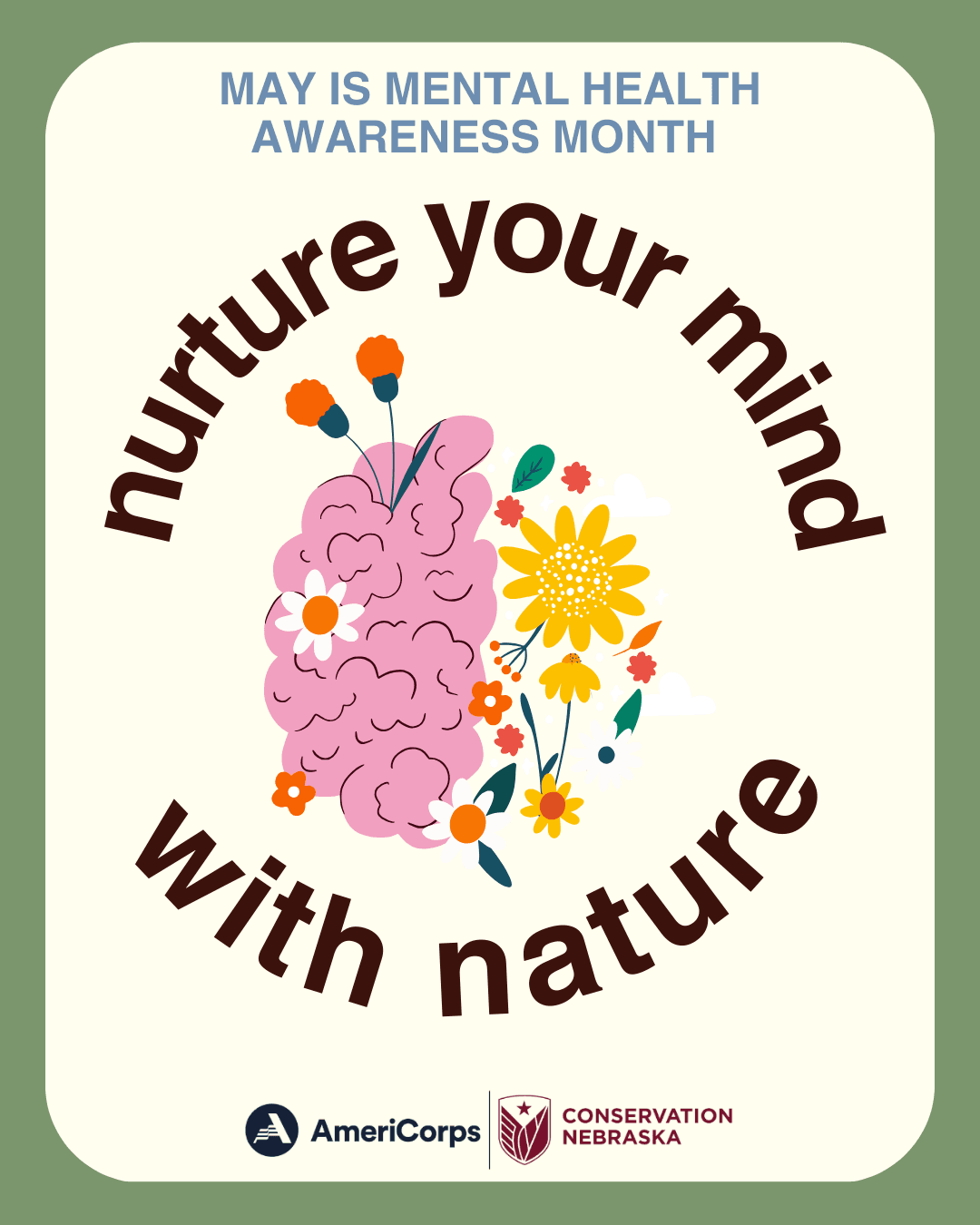
May is Mental Health Awareness Month, and in our busy everyday lives, we tend to get caught up and forget how wonderful our natural world is and the importance it has on our health. Mental health is one of the most crucial parts of overall well-being. It helps us cope with personal challenges, work demands, relationships, and the stressors we face every day.
With summer just around the corner and the sun shining just a little longer, it's an important time to reflect on why it's crucial to have a strong connection with nature. A key highlight from an article produced by the American Psychological Association called "Nurtured by Nature” written by Kirtein Weir, describes that most Americans spend nearly 10 hours a day in front of screens. With so much time tied to the digital world, we risk losing touch with the natural one. Weir describes some of the pros of spending more time outdoors and how even a simple stroll in the park can improve our attention, lower stress, boost mood, reduce the risk of psychiatric disorders, and even increase empathy and cooperation.
Cognitive benefits have long been linked to mental health, and there's growing recognition of the importance of integrating them into our daily lives. The article by Weir suggests that integrating natural green spaces into environments like schools and neighborhoods can enhance cognitive health. It notes that connecting with nature elicits psychological responses that lower cortisol and stress levels, while also promoting additional cognitive benefits.
Weir reiterates this point by referencing a study from the Proceedings of the National Academy of Sciences of the United States of America, which took place between 1985 and 2003 and looked at 900,000 residents. The study found evidence to suggest a reduced rate of depression, mood disorders, schizophrenia, eating disorders and substance use disorder when spending time in nature. For those with the lowest levels of green space exposure during childhood, the risk of developing mental illness was 55% higher than for those who grew up with abundant green space. This illustrates the importance of spending time outdoors, especially from a young age. It’s important to make these outdoor spaces, whether it’s parks or trails, easily accessible to all.
Spending time in nature offers a wide range of mental health benefits. According to findings from the Mental Health Foundation, "nature" can include not only green areas like parks, woodlands, and forests, but also blue spaces such as rivers, lakes, beaches, and canals. It also covers elements like street trees, home gardens, roadside greenery, and even indoor plants or windowsill gardens. Interestingly, simply watching nature-focused documentaries has also been linked to positive effects on mental well-being. So, no matter the weather you can always seek the benefits of nature from the comfort of your couch.
Nature can comfort us in times of stress and can help us cope with challenges. For example, during the COVID-19 pandemic, 45% of people in the United Kingdom reported to the Mental Health Foundation that visiting green spaces, such as parks, helped them to cope throughout the pandemic.
Our connection to nature is an important aspect in seeing the benefits blossom from our time outdoors. Evidence from the Mental Health Foundation shows the quality of our relationship with nature is part of the reason for its positive impact on our well-being. This connection to nature can be nurtured through how we relate to and experience it. We can invest in our connection with nature by engaging all of our senses like listening to birdsongs, touching grass, or smelling flowers. Even when we’re not outdoors, reflecting on our favorite walks or writing about natural places can help us appreciate and stay mindful of the natural world.
Nature heals in many ways, and in ways we may least expect it. When we need to reconnect with nature, we often say we want to "touch grass" but it might actually be what’s under the grass that matters most — soil. A study from the International Journal of Environmental Research and Public Health highlights the psychophysiological benefits of soil, showing that contact with soil containing the bacteria Streptomyces rimosus can enhance serotonin levels, reduce inflammation, and promote relaxation-related brain activity. These findings suggest that soil microorganisms may play a valuable role in supporting mental and physical well-being during horticultural activities.
Different ways to get your soil fix include: playing in nature, earthing or barefoot walking on the ground, spa treatments with mud baths or mud masks, growing plants, gardening, and even washing produce straight from the garden. If you are in need of a new hobby, gardening may be one to take on this spring and watch the benefits blossom.
As the seasons change, our mental health can shift too, and it’s important to recognize those changes. As spring arrives, it’s helpful to be mindful of how seasonal changes can affect mental well-being, as explored in a blog from the University of Nebraska-Lincoln. More sunlight and warmer weather can naturally lift our mood, boost energy, and encourage outdoor activities, all of which support our mental health. The season’s sense of renewal, with blooming nature and longer days, can also spark creativity and increase social interaction.
However, not everyone experiences spring the same way. According to Psychology Today, some may feel pressure from increased social expectations or find changes in routine, like disrupted sleep patterns, challenging. Solo outdoor activities and maintaining a regular sleep schedule can help ease these transitions.
Spring is a great time to set new intentions, whether it's exploring a hobby, improving self-care, or simply enjoying nature. Everyone's needs are different, so find what nurtures your well-being and make space for what helps you feel balanced and refreshed. It’s important to nurture your relationship with nature to help your well-being blossom this spring and every day.

